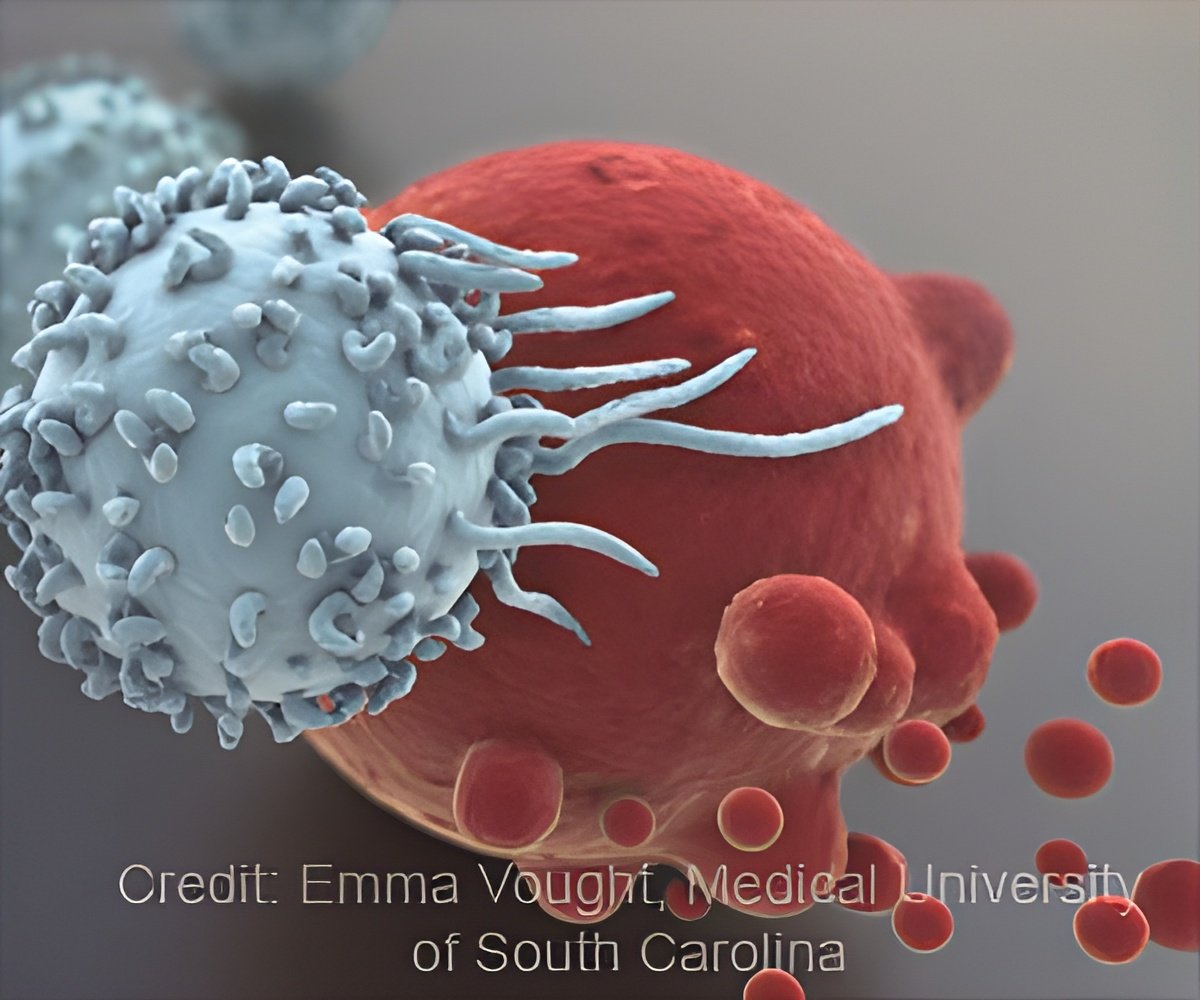Inhibition of moesin, a novel protein that normally suppresses immune attack against tumor cells could become potential cancer treatment target.

- Cytotoxic T cells are a subset of immune cells capable of killing cancer cells.
- Generation of Tregs in the tumor microenvironment suppresses cytotoxic T-cell function and promotes tumor growth.
- Moesin, a novel protein has been shown to enhance Tregs formation and favor cancer cell survival by escaping the immune system.
- Moesin inhibitors could, therefore, become potential treatment option in cancer immunotherapy.
One of the forms of cancer treatment is Immunotherapy which involves using agents that modulate the immune system. The current research endeavor hopes to develop one such agent that could target the tumor cells attempts at evading killing by the host cytotoxic T-cells.
How Moesin Suppresses the Immune T cells
Moesin is a membrane organizing protein and a member of the ERM protein family, whose other members are ezrin and radixin. Moesin is thought to play a role in cancer progression.
Under normal circumstances, when an immune response is complete, a growth factor called transforming growth factor –β (TGF-β) acts to convert naïve T cells to Tregs which in turn suppress the activated inflammatory T cells and degrade them. This keeps the inflammatory response in check as an exaggerated immune response can be harmful to the host and also cause autoimmune diseases.
The protein enhances the role of TGF-β in the formation of Tregs. Thus moesin acts in tune with TGF-β to dampen the immune response.
- Moesin increases Treg generation by interacting with a TGF-beta receptor (TβR-II) making it more abundant, and suppresses the activity of cytotoxic T-cells.
- On the other hand, TGF-beta signaling was decreased in the absence of moesin, interfering with the generation and function of Tregs thereby enhancing the T-cell activity.
The research team conducted further experiments to validate their above observation. To this end, they studied the results of using adoptive T-cell therapy in mice lacking moesin.
- When these anti-cancer T cells were injected into mice lacking moesin, these cells became activated and multiplied rapidly and survived for a longer period of time reducing incidence of tumor recurrence. Interestingly, all the mice with moesin relapsed, while most of the mice lacking moesin were cured of the tumor.
How Tumor Cells Evade Immune T-Cells
Cancer cells have evolved mechanisms to hide from or avoid the tumor-killing T cells. Many cancer cells produce TGF-β which attaches to the surface of tumor-killing helper T cells preventing them from fighting the tumor cells. These T cells become converted to Tregs and depress the immune response against the tumor.
"Because moesin supports greater Treg production, we could design moesin inhibitors to halt or slow active TGF-beta signaling and slow down Treg conversion so that anti-tumor T cells can have a chance to see the cancer and eradicate it," explains Zihai Li, M.D., Ph.D., chair of the Department of Microbiology and Immunology at MUSC and senior author on the paper.
Conclusion
These findings of the study suggest that moesin could be a potential therapeutic target in developing new treatments for cancer as well as immune disorders. Inhibitors of moesin could be developed to treat cancers while moesin inducers may have the potential to treat autoimmune diseases. Moesin modulators could also be combined with current immunotherapy regimens.
"These findings are very interesting for the field and provide a lot of directions for further research into alternative therapies," says Li.
References:
- Ephraim A. Ansa-Addo, Yongliang Zhang, Yi Yang, George S. Hussey, Breege V. Howley, Mohammad Salem, Brian Riesenberg, Shaoli Sun, Don C. Rockey, Serhan Karvar, Philip H. Howe, Bei Liu, Zihai Li. Membrane-organizing protein moesin controls Treg differentiation and antitumor immunity via TGF-尾 signaling. Journal of Clinical Investigation, (2017); DOI: 10.1172/JCI89281
- Moesin - (https://en.wikipedia.org/wiki/Moesin)
- Membrane-organizing protein moesin controls Treg differentiation and antitumor immunity via TGF-β signaling - (https://www.jci.org/articles/view/89281)
- Ezrin-Radixin-Moesin family proteins in the regulation of B cell immune response - (https://www.ncbi.nlm.nih.gov/pmc/articles/PMC4548853/)
Source-Medindia















